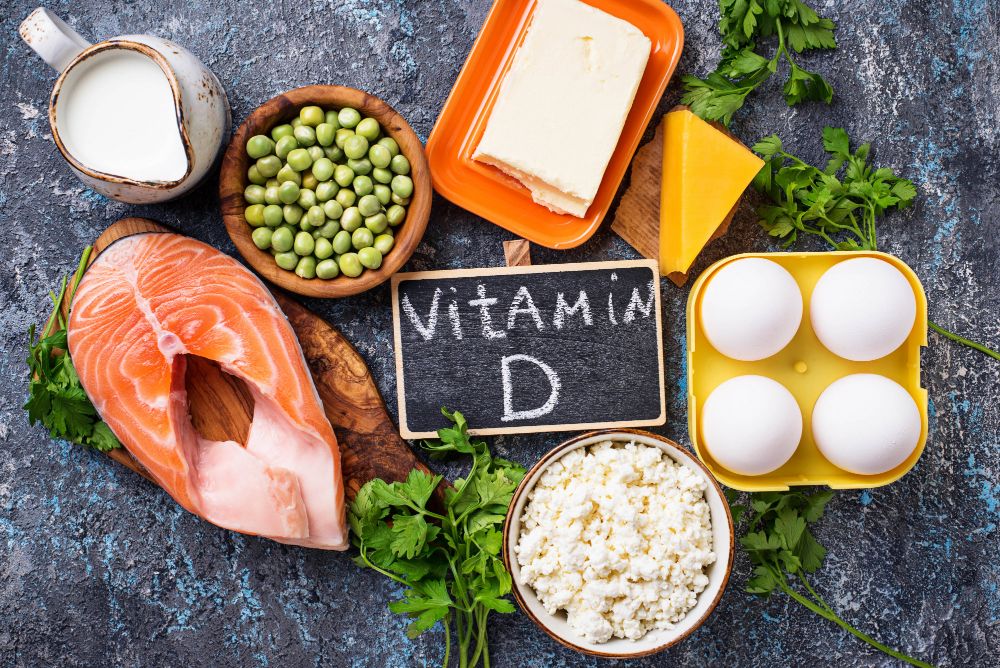5 Surprising Benefits Of Vitamin D You’ve Probably Never Heard

Vitamin D is essential for strong bones and teeth, but did you know that this important nutrient offers many other health benefits as well?
Vitamin D helps to regulate the immune system and can help to prevent autoimmune diseases such as multiple sclerosis, rheumatoid arthritis, and type 1 diabetes. This nutrient is also important for brain health and has been shown to reduce the risk of Alzheimer’s disease and dementia.
Vitamin D is essential for maintaining cardiovascular health and reducing the risk of heart disease. This nutrient helps to lower blood pressure and cholesterol levels and protects against heart attacks and strokes.
Getting enough vitamin D is important for optimum health, but many people are deficient in this essential nutrient.
The best way to get vitamin D is from sunlight, but you can also get it from certain foods such as fatty fish, egg yolks, and fortified dairy products. You can also take a supplement to ensure you are getting enough vitamin D.
benefits of vitamin D
Vitamin D helps improve your mood
Vitamin D is well-known for its benefits for bone health, but did you know that it can also improve your mood? Research has shown that vitamin D can help relieve symptoms of depression and improve mood.
One study found that vitamin D supplementation was as effective as antidepressant medication in treating patients with major depressive disorder. Vitamin D works to improve mood by increasing levels of serotonin, the “happy hormone”.
Low levels of serotonin are linked to depression. Vitamin D also helps to reduce inflammation, which can also contribute to low mood. If you’re feeling down, a little extra vitamin D may be just what you need to improve your mood.
You can get vitamin D from exposure to sunlight, from certain foods, or from supplements.
Talk to your doctor about whether a vitamin D supplement is right for you.
Vitamin D helps improve your cognitive function
Did you know that Vitamin D isn’t just good for your bones? This essential vitamin, which your body needs to absorb calcium, also offers a range of other health benefits.
Vitamin D is essential for cognitive function. A 2019 study found that Vitamin D deficiency is linked to an increased risk of cognitive decline, specifically in older adults. The study found that people with lower levels of Vitamin D were more likely to experience a decline in cognitive function over a six-year period.
In addition to cognitive function, Vitamin D also plays a role in emotional well-being. A 2012 study found that Vitamin D deficiency is associated with an increased risk of depression. The study found that people with lower levels of Vitamin D were more likely to experience symptoms of depression, such as fatigue and difficulty concentrating.
Vitamin D helps improve your cardiovascular health
Vitamin D has long been associated with bone health, but did you know that it also offers a range of benefits for your cardiovascular system?
Here are three ways in which vitamin D can help to keep your heart healthy:
- Vitamin D can help to reduce blood pressure. High blood pressure is a major risk factor for heart disease, so keeping your blood pressure under control is crucial for maintaining a healthy heart. Studies have shown that vitamin D can help to lower blood pressure, and so it may be beneficial for people with high blood pressure to supplement with this vitamin.
- Vitamin D can help to prevent heart attacks and strokes. Heart disease is the leading cause of death in the United States, and so anything that can help to prevent heart attacks and strokes is worth considering. Vitamin D has been shown to reduce the risk of both of these conditions, so getting enough of this vitamin could help to keep your heart healthy.
- Vitamin D can improve the health of your blood vessels. Vitamin D is important for the health of your blood vessels, and it has been shown to reduce the risk of both heart disease and stroke. Vitamin D deficiency has been linked with an increased risk of atherosclerosis, which is the build-up of plaque in the arteries. This can lead to a narrowing of the arteries and a increased risk of heart attacks and strokes.
So, getting enough vitamin D could help to keep your blood vessels healthy and reduce your risk of cardiovascular disease.
If you’re concerned about your heart health, then talk to your doctor about whether supplementing with vitamin D could be right for you.
Vitamin D helps reduce your risk of cancer
Cancer is one of the leading causes of death worldwide, and according to the World Health Organization, one in six people will die from cancer. While there are many different types of cancer, they all have one thing in common: the abnormal growth of cells.
Vitamin D is a nutrient that is essential for good health. It plays a role in calcium absorption, bone health, and immune function. Vitamin D is also believed to offer protection against certain cancers.
There is evidence that vitamin D may help reduce the risk of some types of cancer, including breast, prostate, and colorectal cancer.
Vitamin D may help prevent cancer by reducing cell proliferation, inducing cell death, and inhibiting angiogenesis (the formation of new blood vessels). A growing body of research suggests that vitamin D may help reduce the risk of cancer.
However, more studies are needed to confirm these findings.
If you are interested in taking vitamin D to prevent cancer, talk to your doctor about whether it is right for you.
Vitamin D helps improve your bone health
Vitamin D is essential for our bones. It helps our body absorb calcium, which is the main mineral found in our bones.
Vitamin D also helps to reduce inflammation, which can lead to bone loss. Bone loss is a big problem as we age. We can lose up to 1% of our bone mass each year after the age of 50. This can lead to a condition called osteoporosis, which can make our bones weak and brittle.
Vitamin D can help to prevent osteoporosis by improving our bone health. Studies have shown that getting enough vitamin D can help to reduce the risk of osteoporosis by up to 50%. Vitamin D can also help to reduce the risk of falls, which can lead to fractures.
If you are not getting enough vitamin D, there are a few things you can do.
You can get it from sunlight, food, and supplements. The best way to get vitamin D is to spend 10-15 minutes in the sun each day. You can also eat foods that are high in vitamin D, such as salmon, egg yolks, and fortified milk. Taking a vitamin D supplement is also a good option.
The recommended daily allowance for vitamin D is 600 IU (international units) for adults. You can also get vitamin D from certain types of fish, such as swordfish, tuna, and mackerel.
Vitamin D is essential for strong bones, but it also has many other benefits. It can help prevent cancer, heart disease, and stroke. It can also help improve your mood and boost your immune system.






